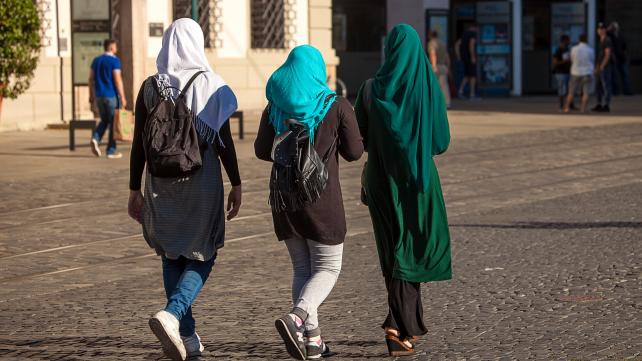
Growing up in multicultural and cosmopolitan Montreal, the largest city in the Canadian province of Quebec, I was raised in diverse neighborhoods all of my life. I had also experienced snippets of racism as a dark-skinned, Hijab-wearing Musilm at times. But that was all they were - snippets.
It was part of the reality of being a minority - religious and cultural - not just in Quebec, but essentially anywhere in the world. I was aware that, while the majority tolerated my presence most of the time, underneath the surface, that tolerance would wear thin during times of stress, war, or other challenges. At best, it would result in individual instances of ignorance. And nothing more.
But I questioned that reassurance when I walked into the inaugural dinner of the Muslim Students’ Association at Montreal's Marianopolis College on Friday February 25, 1994.
It was Ramadan, and the dinner was also an Iftar (fast-breaking) event. The atmosphere was nonetheless festive, with the usual rounds of great food, non-alcoholic drink, and picture-taking (pre-digital phone era). It was, after all, a historic moment for the Muslim students.
But as we ate, my friends and I couldn’t help but talk about the horrific events of that morning overseas. An American-Israeli settler, Baruch Goldstein, had stormed into the Al-Khalil mosque in Hebron, 30 kilometers south of Jerusalem, and murdered 29 Muslims as they prayed, wounding 125.
It made me wonder if that could ever happen in my city, my province, my country. I could never imagine my father going to the Masjid for Taraweeh in Ramadan and being attacked in such a manner, never to come home. We were far away from what the news business routinely described as a “hot spot” - the Middle East. Surely, it could never happen here in multicultural Montreal, in stable and peaceful Quebec, Canada. Could it?
Twenty-three years later, the answer was a shocking yes. This time, the killer’s name was Alexandre Bissonnette. The massacre was in no traditionally media-designated "hot spot". It was in Quebec City.
On January 29, 2017, Bissonnette, fed and fueled by Islamophobia he had followed for years online by right-wing pundits in Canada and the United States, walked into the Islamic Cultural Centre of Quebec City, and murdered six Muslim worshippers right after they had finished evening prayers. Nineteen others were injured.
Saturday marks the fifth anniversary of that day. Last year, the Canadian government announced that January 29 will be a national day of remembrance to honor the victims of the mosque massacre, and express solidarity with the survivors. It will also be an occasion to promote action against Islamophobia. This is thanks to the diligent efforts of Canadian Muslim activists and their supporters, who worked hard to ensure that this horror is never forgotten, and that we learn from it.
I am grateful for this. But I am also saddened that it took a mosque massacre in the province I was born and raised in, the place where I always felt safe and secure as a Muslim, to teach us that such violent bigotry is not the preserve of any specific place, people, or time. We are not any less susceptible to being its victims or its perpetrators. We are not too “advanced” on a civilizational level to succumb to such barbarism.
Baruch Goldstein was radicalized by the extremist Jewish settler movement, with their vicious and violent hate toward non-Jews that justifies all kinds of horrific human rights violations in the service of their occupation. After years of propaganda and hate, Goldstein pulled the trigger. Alexandre Bissionnette was similarly radicalized to despise Muslims in an echo chamber of hate, only his trajectory to violence was shorter.
But the timeline matters little. The bottom line is that every one of us is vulnerable to the harbingers of hate. With the presence of the internet, something that was absent when Goldstein committed mass murder, anyone, anywhere in the world with online access can fall deeply into radicalization.
How far will we let these forces go to whip up frenzy that kills? We have seen this happen barely 30 years ago, in Rwanda and Bosnia, before social media made hate much more mainstream. In those genocides, it was radio that was the medium, not the internet. But the hatred was the same. And so was the outcome. Will we allow it to consume and destroy us? Or will we take the steps necessary to stop it now before it spirals to its inevitable conclusion?



Comments
Islamaphobia
I have studied Islam for years and know it to be a religion of peace. I would hope and pray that hate and ignorance be replaced by tolerance and knowledge.
Location
Add new comment